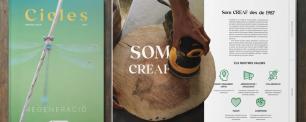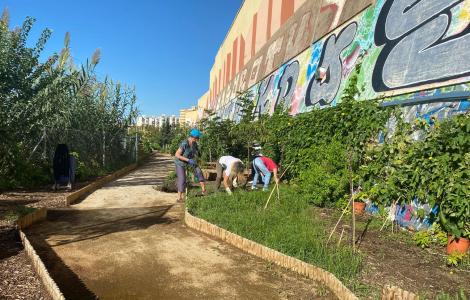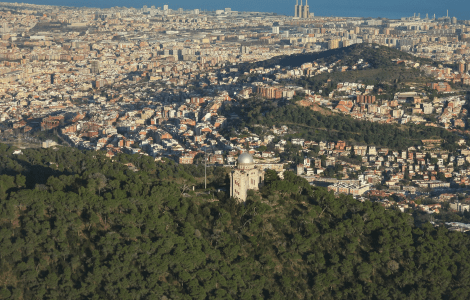CICLES, CREAF’s new annual magazine
One of the objectives of the publication of the annual report of a center such as CREAF is to provide an account. The annual report is a document which summarizes the most relevant milestones and data and which often ends up in a drawer because it is unattractive or difficult to read, practically only suitable for presentation to the governing councils of a center. So, is it possible to innovate in such traditional formats, taking into account the current challenges and communication tools? After years of publishing very standard annual reports, CREAF wanted to rethink its format from scratch. The result is a report in the form of a magazine. Under the name of CICLES, the new report is presented as an innovative annual publication that will revolve around a concept each year and will be, in essence, the center’s annual report. The concept chosen to be presented in 2023 by CREAF is that of ‘resilience’.
The aim of CICLES is to be able to explain what research has been carried out over a whole year, but also to explain how the center is managed, what the obstacles, achievements and failures have been and, above all, to do so in an entertaining format. For this reason, the magazine is a very visual document, full of interviews, chronicles and photographic reports that aim to reach the internal public and make everyone who is interested in ecology, or in the management of the research itself, browse entertainingly and to the end. All this, without renouncing, obviously, to the information that every annual report must have, and that is collected in the form of annexes.
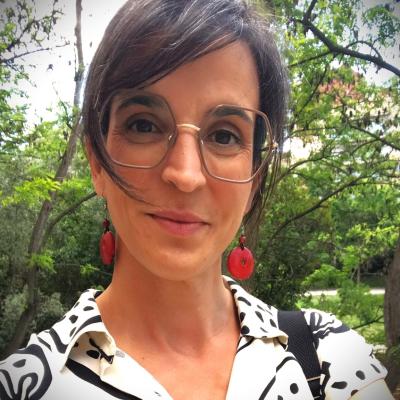
“Corporate communication should not be boring, nothing we do as communicators should be designed not to be read. We work on products that make communicative sense, and the annual reports we used to produce did not. We recycled news and gathered data and annexes, but they were not designed for the reader. We hope that the new CICLES magazine will be liked and that it will bring CREAF’s research and all our internal work to many different audiences, including the members of our Governing Council”.
ANNA RAMON, CREAF‘s head of comunicatons.
Resilience, a house trademark
In today’s ecology and in the context of climate change, the term resilience has become key: we use it to assess how nature is able to recover from a disturbance such as drought or fire. Ecologists study the extent to which various ecosystems are resilient to climate change, and how long they will remain so as these disturbances become more frequent, intense and severe. The term resilience also identifies us because CREAF also has its history of resilience: it has resisted and resists under different economic crises, the changing priorities of different governments, globalization and the loss of talent, or the situation of research and the environmental sector in Catalonia, among other “environmental” factors that determine the day-to-day life of research centers.”
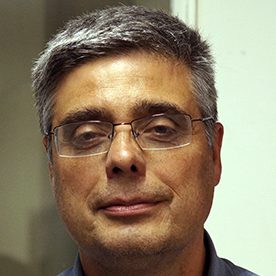
“However, at CREAF we feel that we are in a new cycle, bigger and more necessary than ever, with a renewed Severo Ochoa seal and with the highest score in the CERCA evaluations. We are a resilient center, with a team of committed and adaptable people who are a mainstay of this resilience despite all that we have experienced”.
JOAN PINO, CREAF’s director.
YOU MAY ALSO BE INTERESTED IN
YOU MAY ALSO BE INTERESTED IN




